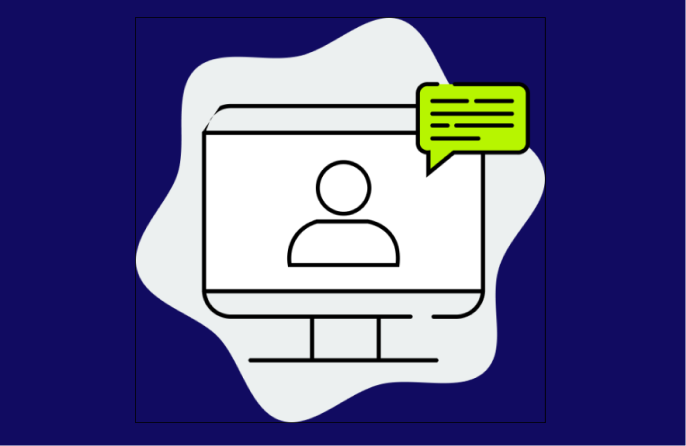Artificial Intelligence for Global Health Challenge
+400 Points
Hey there, future change-makers! Dive into the world of AI and tackle some of the biggest health challenges our planet faces. From combating infectious diseases to improving healthcare access, your innovative ideas can truly make a difference. Imagine a world where everyone gets the healthcare they need regardless of where they live. That's our goal, and AI is our tool for change.
You're here to do more than learn; you're here to invent. Join the Patrick J. McGovern Foundation, and other organizations, as you dream up a groundbreaking product, an impressive business strategy, or a captivating marketing campaign that could transform health with AI for people everywhere. Let's get those mental wheels turning and work towards a healthier future. Ready, set, innovate! Win big $$$!
You’ll address the Challenge question: How can AI be used to save lives and improve global health outcomes?
This Challenge is now closed. It ran from July 1 – August 9, 2024.
Note: You can still complete it to earn points and showcase the experience on your resume. Prize winners can be found on our Challenge Winners page.


Skills you'll develop
- Problem Solving
- Communication
- Social Awareness
Create
You're ready to CREATE a prototype of your idea. This is what you'll use to explain your brilliant idea to the judges!
Choose ONE of the categories for your solution: product design, business concept, or marketing campaign. You can use the selection checklist to help you choose a category.
Create a Business Concept
It's time to get creative and CREATE a prototype of your idea. This is what you'll use to explain your awesome solution! By the end of the Create phase, you should be able to:
Show your Business Blueprint
Explain how you created your prototype(s)
Share your feedback and demonstrate how you revised your prototype(s)
Be ready to create your video pitch
Understand the Create Phase for a Business
⏱️Time: 4-5 Hours (Week 3 of Challenge)
✏️Use the optional KNOtebook to record your ideas
💼 Mentor: Get feedback from a mentor, and others, on your business concept
🎯 Future Ready Skills: Problem-Solving, Collaboration
Business Concept
In this phase, you'll create a concept for a new or improved "business". Perhaps, a for-profit business or a non-profit organization?
Meet a Professional
Yay! You have an idea for a business, organization, or service! First, let’s meet someone who started their own business.
Your Favorites
Your "business" idea may be a for-profit business, like a restaurant or shoe store; an organization, like the Girls and Boys Club or a sports team or a service, like Uber or tutoring, for example.
Think of a business, organization, or service that you really love or one that solves a hard problem or meets a deep need. Ask yourself:
What makes this company one of my favorites?
What value does it add to my life?
What problem does it solve?
What do I like/dislike about their name?

Business Planning
Use a Business Design Framework to help you plan out your idea.
Business Design Framework
All businesses, organizations and services create something of value, gain from it, and deliver it to customers. The following framework is useful for business, organization, or service planning. Flip the cards to learn about each element of the framework.

Create Value
Create Value
What problem are you solving? What are you creating that someone will benefit from and pay for? For example, Uma's business addressed the problem of people not being able to celebrate occasions because of the COVID-19 pandemic.
Capture Value
Capture Value
How will you make sure that you benefit from creating the business? How will your business spend money in order to deliver value to its customers? For example, Lawn Party charged $50+ for each sign and used the money to create more signs, pay for gas, etc.
Deliver Value
Deliver Value
Who does your business serve? How will they benefit from your business, organization, or service? How are you providing this value for your customers? For example, Lawn Party allowed its customers to use customized lawn signs to celebrate their important moments while preventing the spread of COVID-19.Review the slide show below to understand how to put together a business concept.
You may wish to use this Google Doc Business Blueprint which is also in your KNOtebook.
Rapid Prototyping
Rapid Prototyping Example
Now that you have a blueprint, you're ready to create a prototype to get feedback. Rapid prototyping is the process of turning assumptions into opportunities to learn. You can create all kinds of prototypes to transform abstract concepts into something that people can experience. Prototypes should be real enough to get valid reactions from people, but not so real that they take a long time to build. Watch the video to see a unique example of prototyping.
Prototyping is an iterative process and involves the following:
Live Prototyping Examples
Live prototyping is one way to get feedback. It can be hard but is also fun and rewarding. You can learn a lot in a short time. Flip the cards to see some different types of rapid prototyping.

“Lemonade Stand”
“Lemonade Stand”
Make a small batch of your food product and bring to your class to get feedback, or set up a mini store in your class. This is sometimes referred to as a “lemonade stand” prototype.
An App Experience
An App Experience
Instead of creating a working app to test, spend time prototyping the app experience. For example, if it's a service: hang posters to promote, have people submit texts, respond to texts, do the physical act, like standing in line to pick up food.
Community Testing
Community Testing
Try a pop-up in a store or venue that is relevant to your product or service, or create a prototype and try it out in your community.Prototyping Tools
Using your Business Blueprint as a guide and your selected materials, determine what aspect of the business you’d like to prototype first and how you’d like to prototype, then start creating! Consider using the the following tools:
Building materials: Great for prototyping processes, infrastructures, and work flows and just fun for everyone.
Recyclables: Take something apart and use the parts for your prototype or dig into your recycling bin and see what you can use.
Video: A short and scrappy video can go a long way to communicate anything.
Paper, cardboard: Sketching, drawing, diagramming, building

Prototyping Tools
Using your Business Blueprint as a guide and your selected materials, determine what aspect of the business you’d like to prototype first and how you’d like to prototype, then start creating! Consider using the the following tools:
Building materials: Great for prototyping processes, infrastructures, and work flows and just fun for everyone.
Recyclables: Take something apart and use the parts for your prototype or dig into your recycling bin and see what you can use.
Video: A short and scrappy video can go a long way to communicate anything.
Paper, cardboard: Sketching, drawing, diagramming, building

Testing & Feedback
Now that you have your first prototype, it's time to share it and get feedback so that you can improve it.
Testing Plan
Take a look at an example of creating a testing plan to get feedback.
Testing Suggestions
Getting Feedback
Consider using any of the following methods to structure and organize your feedback-gathering process.
Iterative Process
Iterating
After you get feedback, it’s time to make changes to your prototype or prototype another part of your product. Remember, the goal is not for your prototypes to be universally loved. The goal is to get as much feedback as you can to help you make your concept better. Continue to prototype, test, and iterate as much as you can, until you are satisfied with your prototype. This may be a multi-day process and is not to be rushed.


Mentor Moment
Get feedback from a professional who will be judging your project!
Consider how you will test and get feedback from a mentor who may be reviewing your prototype online and giving written feedback. Depending on what you create as prototypes, you could scan, take a photo, or capture video to share and get feedback. You may want to use the “I Like, I Wish, What If...” or the grid method.
Get feedback on your prototype now!
PRO Criteria
Continue to prototype, test, and iterate, as time allows and you feel happy with your final prototype.
Make sure your prototype demonstrates that your idea is:
Purposeful: Addresses the problem
Results: Will have an impact
Original: Is unique from everything that already exists or builds on something in a new way

